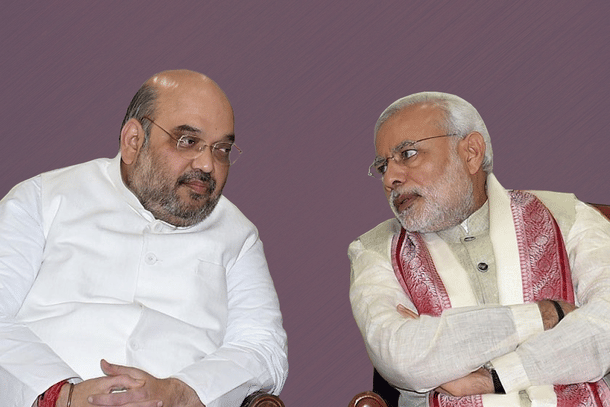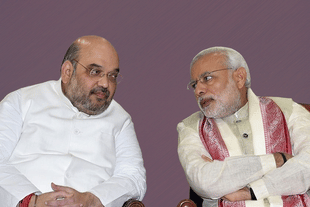Politics
Why New Delhi Should Not Rush To Hold Elections In Jammu And Kashmir
Arshia Malik
Jul 25, 2024, 02:14 PM | Updated Aug 02, 2024, 06:25 PM IST
Save & read from anywhere!
Bookmark stories for easy access on any device or the Swarajya app.


The recent Lok Sabha elections are being touted as the most successful in Kashmir Valley with a 50 per cent turnout, no allegation of booth capturing or rigging, and the election of a radical, separatist-activist to Parliament has silenced the Intifada factory (a motley group of Islamised civil society, bureaucrats, journalists and politicians).
Knowing that India's parliamentary democracy works, they have a chance to subvert the process and insidiously place their Jamaat people (agent provocateurs) in the democratic institutions, using the loopholes in the bureaucratic process and the Indian law.
The government still seems to be listening to those in the valley who want a power grab and the same status quo, whichever form it is possible in after the abrogation of article 370.
New Delhi's dealings with those soft separatists masquerading as secular politicians have always proved erroneous throughout the 1980s, 1990s and 2010s.
Hopefully, New Delhi isn't going to do a Dulat Doctrine 2.0 again, a miserably failed attempt to incentivise the separatists and hold talks with them so that they would not fuel the religious agitprop (agitation propaganda) on the streets of Kashmir.
The doctrine emboldened them and they justified their using terror groups to advance the Jamaat-e-Islami's political agenda of the Islamisation of Kashmir and eventual merger with Pakistan, dubiously termed tehreek-e-azadi (struggle for freedom).
This time the government should listen to the silent majority of the valley who were not able to voice their aspirations because of the AK-47 gun culture earlier and the Intifada factory's campaign to cancel them as 'mukhbirs' (native informants/collaborators) or murtad (apostates) inviting the wrath of the terrorists.
The same silent majority got a breathing space after the abrogation of article 370 and 35A on 5 August 2019, caught as they were between the Islamist hardliners, the moderate but devious civil society and the soft separatism of the dynast politicians.
They are quite satisfied to see work ethics developing in the govt offices, and how the 'babus' are available for the 'awaam' (common folk) to hear their woes instead of being absent from office on government salaries.
Also, the developmental works are proceeding at a good pace, Kashmir will be connected with the rest of India when the Sangaldan-Reasi train link is completed, and the steadily stabilising economy is boosting Kashmiri entrepreneurs, startups, innovators and developers almost every month.
Amidst this 'healing touch' that the natives desperately need, it will be a hasty decision to hold assembly elections and restore statehood to the valley. The Intifada factory is still in the process of being dismantled by the SIA (State Investigation Agency) and the NIA (National Investigation Agency).
Terror links are still being mapped in Kashmir and almost every week there is an arrest, a raid or sentencing. The Jamaat-e-Islami cadre is doing what they know best — surviving by blending into the landscape and camouflaging their radical agenda; even pretending to salute the tricolour, sing Vande Mataram and hug "outsiders" from India.
This is a playbook taken straight out of the Muslim Brotherhood manual which talks about insidiously subverting counter-terror operations and de-radicalisation attempts from within by getting jobs and masking their true intentions.
If the ban on the Jamaat-e-Islami J&K chapter (JIJK) is lifted it will legitimise those who still have a separatist Islamist agenda and are looking for inclusion into the mainstream without evolving or reform.
National parties like the Bharatiya Janata Party and the Congress should have fielded their candidates in the Lok Sabha elections, and as native Kashmir observers noted, winning and losing is part of democracy.
At least the natives would have had a much more diverse choice than being limited to dynast politicians of National Conference, People's Democratic Party, People's Conference and Apni Party.
There are other communities besides the Sunni majority living in the valley, like the Kashmiri Pandits, the Sikhs, the Paharis, Christians, Gujjars, Ahmediyas, Shias, and even agnostics and atheists who would have liked non-Muslim candidates to vote for.
The apprehension is that Muslim politicians might disguise their Islamist agenda with issues like unemployment, infrastructure demands, and self-governance.
The three-decades-old Wahhabisation of the society has resulted in a lopsided cultural scene. More needs to be done about this and soft initiatives like theatre, dance, and music concerts, which foster inclusiveness from all parts of India need to be showcased.
This will help to develop a healthy and open sensibility to other cultures, which has been missing for all these years, in addition to the next generation getting exposed to the diversity of pan-India.
Truth and reconciliation cannot happen without all three communities of Kashmiri Muslims, Sikhs and Pandits sitting together to acknowledge the harm done to the social fabric by jihadi terrorists and how ordinary people too suffered when the state was forced to take draconian measures.
The population is suffering from severe traumatic events and anger management issues and there is a scarcity of mental health clinics and trained psychologists and psychiatrists.
Healing seminars, keeping in mind the complexities of the socio-economic and religious sensibilities of the people, the state could invest in these programmes on a large scale.
Despite the abrogation, Kashmir still has a long way to go to repair its social fabric, which was torn at the onset of the 1990s. The generation born during the 1990s still has to hear the stories and facts from the older generation that was part of the much-touted Kashmiriyat culture of the 1970s and 1980s.
The influence that the Intifada factory and the two-faced politicians had on that generation will minimise with time as social media and technology connect them to the geopolitical realities of the region and the new world order. It is too soon to expect things to normalise and deradicalisation of the elite families and the masses to take place.
Pakistan still hasn't given up on its "bleed India with a thousand cuts" strategy and the latest interview of Pakistani resident Zafar Iqbal alias Shamsher Khan, Deputy Commander of the Hizbul Mujahideen on social media reveals Pakistan's gameplan to use international terror groups in Jammu and Kashmir (J&K) and the rest of the country.
The operative has deep links to Al-Qaeda and was a former Guantanamo Bay inmate, sent to Kashmir in 2006.
In 2012, after the Amarnath land row, the Hizbul Mujahideen in collaboration with other terror groups issued poster threats to railway construction workers to stop work and warned village sarpanches to stay away from mainstream politics.
Zafar Iqbal's interview with a local journalist signals the end of Kashmiri terror leadership funded by the Pakistan-ISI (Inter-Services Intelligence) establishment and the complete takeover by the Lashkar-e-Taiba (LeT).
Post abrogation of article 370, Iqbal was tasked to lead terror operations inside J&K and the resurgence of incidents in the Jammu region is reminiscent of the 1996-2002 period when Pakistan used 'fidayeen squads' in the Pir Panjal and Kashmir region to keep terrorism alive.
The social media circulating interview is a signal of the desperation within the ISI and LeT to make one last stand of defiance before the imminent collapse of the Pakistan-ISI establishment's support to the jihad in Kashmir, it also means the task for the Indian security forces is cut out.
While India deals with terror groups with its usual efficiency, there must be no political haste to speed up the normalisation process before the overground workers, collaborators with anti-India forces and deceptive politicians are kept in check.
Attitudes take centuries to change, and racist, communal and bigoted attitudes developed by the petro-dollar imported Wahhabism will take a long time to change. New Delhi needs to tread carefully.
Arshia Malik is a columnist and commentator on social issues with particular emphasis on Islam in the Indian subcontinent.





